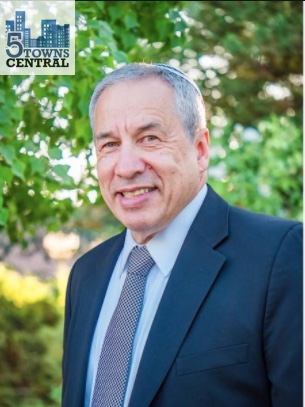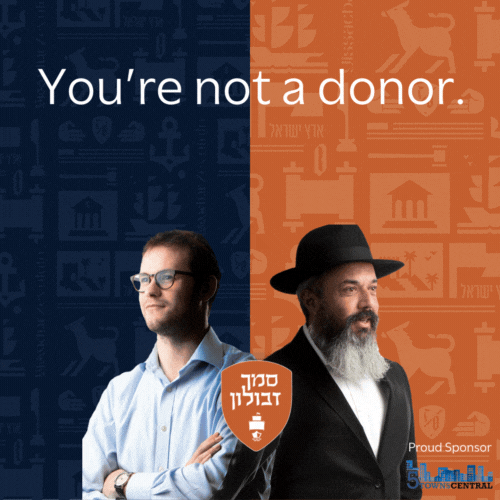America today is in the midst of a learning process about the history and persistence of racism in this country. Jews often think that since we are still facing our own struggles with anti-Semitism, that this learning process has little to do with us. But it has everything to do with us, both in terms of our own history and our own values. In the personal reflections below, I suggest some of the ways in which we Jewish Americans have important learning and growing to do at this significant and difficult moment in our country.
I was born eighty four years after the end of the Civil War. I grew up in a white – Jewish and Italian – neighborhood in Sheepshead Bay, Brooklyn. Abraham Lincoln, Harry Truman, Jackie Robinson and Martin Luther King, Jr. were American heroes in our home. My parents admired liberal values and always voted for the Democratic Party. Jacob Javits was the only Republican who ever got their vote. We favored the civil rights legislation of the 1960s and mourned the assassination of Martin Luther King, Jr..
My parents were frum Jews who made personal sacrifices to uphold strict observance of the Sabbath and to give their son a yeshiva education. Our shul was a small Chassidishe shtiebel down the block from our home. They saw no contradiction between their frumkeit and their appreciation of liberal values. In fact, they understood that a liberal democracy that upheld the humanity and the rights of all Americans was one that would protect and uphold the rights of Jews to live freely and to worship our God freely. Conversely, a democracy that diminished the humanity of some of its citizens was at risk of diminishing the humanity of all of its citizens.
Even with my family’s support for the civil rights movement and our general liberal values, we watched and enjoyed a comedy show called Amos and Andy, in which white actors on the radio and black actors on TV, portrayed black Americans through the prisms and stereotypes held by white Americans. There was no overt racism expressed in the show, and at the time we saw no contradiction between enjoying the show and our support for civil rights. Years later, the NAACP successfully sued to have the show taken off the air on the grounds that it promoted racism in subtle but significant ways. This pushed me to reflect more deeply on this show of my childhood, and in hindsight I came to see that the show advocated what I will call “passive racism.” As Jews, we would immediately see the perniciousness of a show that portrayed Jews in an analogous fashion. While my family and I certainly meant no harm in watching this show, the fact that it didn’t make us uncomfortable at the time makes me understand that even well meaning, good people can have much to learn when it comes to racism and how we approach cultures that are different from our own. It is our job as Jews to educate others about passive anti-Semitism, and also to be willing to listen and learn about passive racism in ourselves.
Thousands of innocent African Americans were victims of lynching and racial violence in the USA after the Civil War and well into the twentieth century. The lynching of African Americans during this long period was a horrific crime used to intimidate black people and create racial hierarchies and to promote a racially segregated society. Racial terror lynching was most prevalent in the South but it also happened up north. African Americans were the overwhelming majority of the victims. The same set of values that saw black Americans as inferior people also espoused the inferiority of Jews, who were also victims of lynching, though to a significantly lesser degree. Most famously, the lynching of Leo Frank in Marietta, Georgia, in August of 1915 had a profound impact on American Jews.
Jews have traditionally supported the Civil Rights movement. Prominent Jews marched with MLK and were active in the NAACP. Among Jews of all denominations, Rabbi Saul Berman is an example of an Orthodox Rabbi who marched and who was arrested for his civil rights activism. And the victims of the infamous June 1964 abduction and murder of three young civil rights activists in Mississippi were two New York Jews and one African American from Mississippi. The famous horror story of the Civil Rights movement attested to the significant presence of Jews.
I have shared with my own shul some of my own formative experiences in terms of learning the Jewish value of anti-racism. One particularly memorable moment was when my Rebbe, Rabbi Aharon Lichtenstein ZT”L made all of the students in his shiur at YU rise early one January morning in 1968 to pray at the break of dawn (vasikin), have our regular Talmud shiur for two hours, and then head over to the UN to join a protest against the genocide of the black Ibo tribe in Biafra, in the Nigerian Civil War. Rabbi Lichtenstein taught us that black lives matter and that we could do it all – daven, study Torah, and actively oppose racism and promote human rights for all.
Another powerful moment was more recent, when my Congresswoman, Kathleen Rice, organized a meeting with Jewish and black clergy after the horrific shootings in a Charleston black church in 2015. When I attended this meeting together with my colleague Rabbi Kenneth Hain, I was moved by how appreciative my fellow black clergymen were of Jewish expressions of solidarity in their moment of pain and suffering. Just this past Sunday, Rabbi Hain and I marched in a peaceful and responsible Black Lives Matter rally in the Five Towns. I was once again moved by how appreciated it is when Jews express our support for something so basic – that we value the human life and dignity of our fellow black Americans.
Our Torah teaches that all human beings are created in the image of G-d. There are references in the Bible to people from “Cush” who have black skin, but this is never in a racist context. Indeed, Moshe’s wife is described as a “Cushite” woman. And in the Song of Songs (Shir HaShirim), people of black skin are depicted by King Solomon as “black and beautiful.”
I believe that the ‘active racism’ that MLK waged war against is not generally something that is characteristic of the Orthodox Jewish community. But, I do believe that many of us are guilty of ‘passive racism’ to varying degrees. I have described above some of my own learning curve regarding passive racism. And I am interested in and open to learning more. Just as I want my fellow Americans to listen to my story and my community’s story when we say that something is anti-Semitic and harmful to Jews, we must listen and learn when our fellow Americans tell us that something we may say and do is harmful to them. We all have more to learn and to understand in this regard.
Let me begin, though, with a very simple point about how we talk about our black fellow Americans. The word ‘shvarts’ in Yiddish means black and a ‘shvartse’ means a black person. When my exclusively Yiddish speaking grandparents came to this country at the turn of the twentieth century they meant nothing more than a black person when they said ‘shvartse’ in their native language.
But the word ‘shvartse’ has evolved in the mouths of many of us to imply the stereotype of an unsophisticated, uneducated black person, suited only for menial tasks. The reality is that in this day and age, the term is racist, even when spoken by the majority of Jews whom I have already said are not actively racist. The black characters in Amos and Andy were basically what is meant by the word ‘shvartse’ today. Although we surely do not intend this to be so, the continued use of this term by some Jews prevents us from doing the listening and learning that we need to be doing, and that we expect from our fellow Americans when it comes to anti-Semitism.
Language is important. How we speak impacts how we think both consciously and unconsciously. Think of Jew-Bag, hymie, lampshade, kike, etc – all derisive ways of referring to Jews. We would protest loudly as we did when a black politician called NYC “Hymie-town”. So imagine how an African American feels when the word “shvartse” is used to describe him or his community. Our children should not hear this language at home or in school! Too often, they do, and it affects how they see our fellow human beings in detrimental ways. We can and must do better.
Jews have been victims of the most heinous crimes ever perpetrated against a people. We have been scorned, put into ghettos, stereotyped, and murdered. And if we educate ourselves on the history of slavery and the slave trade and the Jim Crow era in America, we would still be shocked to learn about the heinous and egregious crimes perpetrated against the ancestors of black Americans
Orthodox Jews are the most visible Jews and the first to suffer scorn and discrimination whenever Anti-Semitism flares up, as it does far too often these days. Shouldn’t Orthodox Jews be role models for society in acknowledging that all human beings are created in G-d’s image no matter what their race may be? It is time to change our culture and to remove passive racism from our speech and our mindset. Let us advocate what the Torah demands of us and let us be a part of the dream of Martin Luther King, Jr., a great American hero for all of us and for our children.
RHB


















